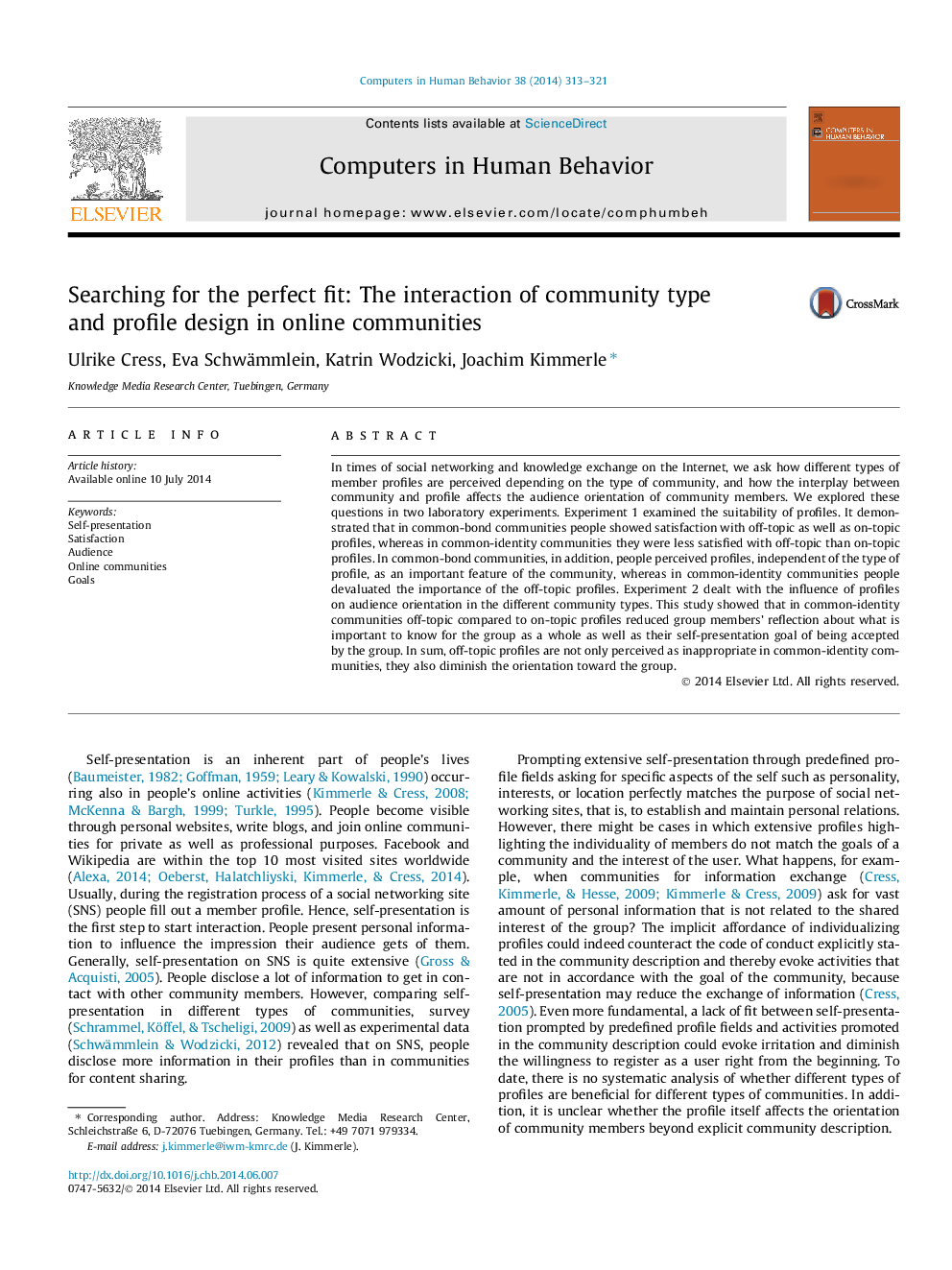| کد مقاله | کد نشریه | سال انتشار | مقاله انگلیسی | نسخه تمام متن |
|---|---|---|---|---|
| 350640 | 618454 | 2014 | 9 صفحه PDF | دانلود رایگان |
• In common-identity communities people’ satisfaction depends on the type of profile.
• In common-identity communities people devaluate off-topic profiles.
• In common-identity communities off-topic profiles diminish group orientation.
In times of social networking and knowledge exchange on the Internet, we ask how different types of member profiles are perceived depending on the type of community, and how the interplay between community and profile affects the audience orientation of community members. We explored these questions in two laboratory experiments. Experiment 1 examined the suitability of profiles. It demonstrated that in common-bond communities people showed satisfaction with off-topic as well as on-topic profiles, whereas in common-identity communities they were less satisfied with off-topic than on-topic profiles. In common-bond communities, in addition, people perceived profiles, independent of the type of profile, as an important feature of the community, whereas in common-identity communities people devaluated the importance of the off-topic profiles. Experiment 2 dealt with the influence of profiles on audience orientation in the different community types. This study showed that in common-identity communities off-topic compared to on-topic profiles reduced group members’ reflection about what is important to know for the group as a whole as well as their self-presentation goal of being accepted by the group. In sum, off-topic profiles are not only perceived as inappropriate in common-identity communities, they also diminish the orientation toward the group.
Journal: Computers in Human Behavior - Volume 38, September 2014, Pages 313–321
